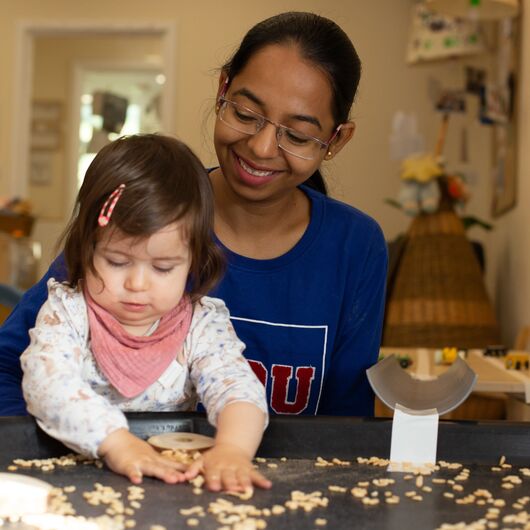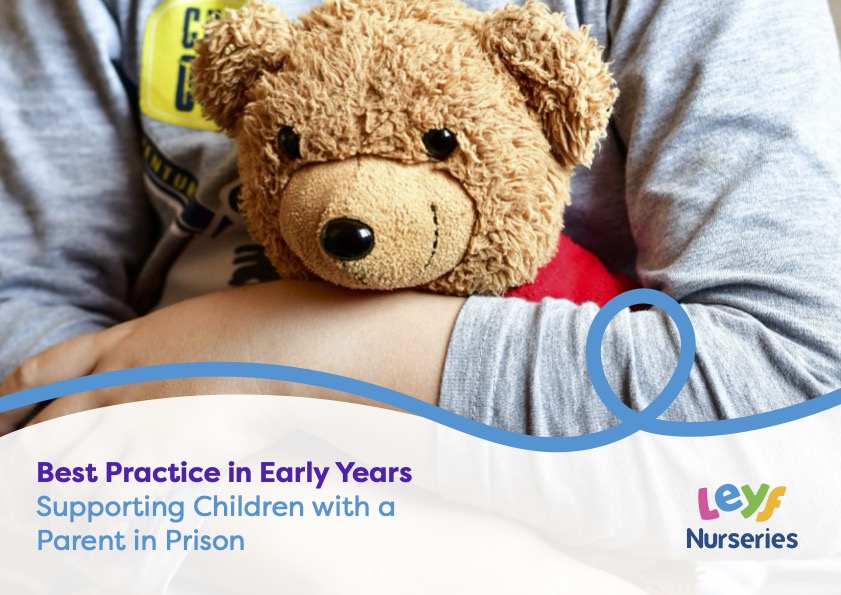
The UK Budget: It’s all about the Working People!
When the Labour Party won the election Bridget Phillipson MP the Secretary of State for Education told us that: Early years is about more than just childcare –…
June 17th 2024
Having waited patiently for the manifestos from the main political parties which arrived last week, predictably they were light on detail.
To be honest, we were most interested in what Labour had to say because we know what the Conservatives will do and it’s unlikely that the Liberal Democrats will form the next government! That’s a shame because some of their plans for Early Years and Child Care (EYCC) were more thoughtful with some quick wins such as sorting out the Early Years Pupil Premium.
Interestingly, there were a few issues that were shared by both Labour and the Liberal Democrats such as changing the Ofsted single grade wording, providing a scorecard for parents and more checking of owners of big chains. Anyone who read my recent blog on the importance of the OBC might understand why I was so insistent that we maintain engagement with the regulator as changes will have direct implications for us.
EYCC is highly political, so I trawled through all of the manifestos to look at economic changes, housing plans, health support and obviously EYCC plans. Manifestos matter, not just for their promises for children’s services but because of the wider plans that will impact on businesses, and staffing. Because I know you are all very busy coping with staff shortages and increased levels of SEND amongst our children and I am a night owl, I have tried to summarise the messages from the manifestos to make for easy reading while we try to manage the day to day lives of childminders and those running nurseries.
The Labour Party’s announcement that 3,000 new nurseries would be set up in schools was greeted with some unease and compounded by the lack of detail.
Key questions about shifting demography and falling birth rates (causing the empty space in schools) were not explored which left too much space for criticism. Unhelpful language about children not being ‘school ready’ and schools being the best place for them irritated the PVI and soured the announcement.
We know that the Conservatives will continue to roll out the childcare expansion plan and they also intend to create a Family Hub in every local authority. I suspect the recent research from Ofsted about the benefit of Start for Life has influenced this promise. No sound about a return to Sure Start from Labour.
All three parties may note the warning from the National Audit Office that the current government’s extension of Early Years entitlements for working families will widen the attainment gap between the disadvantage chairs and their children and their peers. Although the Liberal Democrats suggestion that when public finances allow, they will give disadvantaged 2-year-olds an extra FREE five hours of Early Years education a week as another step towards universal, full-time entitlement for all 2- to 4-year-olds may address this.
Provision to support SEND children also made it to all three manifestos, with Labour pledging to take a community-wide approach, improving inclusivity and expertise in mainstream schools. The Liberal Democrats want to set up a National SEND body whilst the Conservatives want to end the postcode lottery of support by delivering 60,000 more school places and a further 15 new free schools for children with special educational needs. No mention of the growing SEND issues in nurseries where the foundation of support is built.
Labour wants growth and stability and consider EYCC to be part of the plan to deliver this, not least by enabling 3/4 of a million more parents to re-enter the labour market. They want to improve the prosperity of the country and the living standards of working people and kick start economic growth by being pro-worker and pro-business, a party of wealth creation. They are calling it ‘securonomics’. James Heckman EYCC investment formula raised the awareness of the economic benefits of investing in the Early Years over 20 years ago, so we should pay attention to the Labour plan to create a National Wealth Fund, capitalised with £7.3 billion over the course of the next Parliament. The fund will support labour growth and clear energy emissions and make transformative investments across all parts of the country and will aim to attract £3 for every £1 of public investment.
Initially, Labour did not mention a staff recruitment and retention strategy but following much dismay from the sector, Bridget Phillipson (Shadow Secretary of State for Education) issued a statement saying there would be support for staff working in EYCC so they are recognised for the skills and important work they are doing. They intend to recruit an additional 6,500 new expert teachers to ensure teachers are teaching the subjects that they are trained in teaching. I wonder if this would include Early Years teachers?
Both Labour and the Liberal Democrats will make changes to the business rate system, and Labour will not raise income tax or National Insurance. All three parties have a focus on clean energy and tackle climate change. The want to help cut utility bills and Labour will put failing water companies under special measures to clean up the UK’s water supply. I suspect that the DfE targets for Climate Action Plans (CAPs) in every nursery and school will continue to be rolled out.
Housing, which is such a big issue for so many of our staff, will be addressed through an affordable homes programme. In London, Labour promises to put an end to the farce of new developments being sold off to international investors before they are even built and instead introduce a permanent comprehensive mortgage guarantee scheme to support first time buyers struggling to save for a deposit with low mortgage costs. I do hope that this will be suitable for the many staff who work in the EYCC who simply can’t afford to get on the property market. They intend to build 1.5 million homes during the course of the next parliament. Not sure that’s going to be enough given we already have a shortfall and if there are million people entering this country every year then there won’t be enough houses. But we have to watch and see. They hope to preserve the Greenbelt which will be useful for our children as well as green ‘lungs’ around London to keep the air clean. They intend to abolish no fault evictions which would be very well received by some of our families who’ve experienced exactly that. The Conservatives intend to deliver 1.6 million well-designed homes in the right places while protecting our countryside and permanently abolish Stamp Duty for homes up to £425,000 for first time buyers and introduce a new Help to Buy scheme.
All three parties plan to get the NHS back on its feet but Labour want to create the healthiest generation of children ever. This is indeed a bold target and addresses waiting lists, improved NHS mental health and dentistry services and a return of the family doctor. The Conservatives want to overhaul the fit note process so that people are not being signed off sick as a default. Currently, 94% of fit notes are being signed off as ‘not fit for work’. They want to design a new system which moves the responsibility for issuing fit notes away from GPs towards specialist work and health professionals and test integrating a new WorkWell service to provide tailored support to help people stay in or get back to work.
Dentistry is a focus of both Labour and the Liberal Democrats. There will be a national supervised toothbrushing programme for three- to five-year-olds in Labour‘s fully funded breakfast clubs – butno mention of nursery aged children. The Conservatives have a Dental Recovery Plan which will unlock 2.5 million more NHS dental appointments.
The child obesity challenges are also recognised as well as the importance of physical development. Much like Mayor Sadiq Khan has done in London, Labour wants to ban junk advertising on to children, implement the 9:00 pm watershed for junk food advertising on TV and ban paid for advertising of less healthy foods on online media aimed at children.
They’re going to implement a mandatory national curriculum that is balanced and broad and makes a wide range of physical activities compulsory for all schools. Labour is going to protect children from the growth of infectious diseases by reforming the service to allow health visitors to administer routine immunizations to vulnerable and at-risk children. I hope they plan to increase numbers of Health Visitors; they are a rare species in London.
The importance of apprentices was highlighted by all three parties. Labour wants to design specialist technical colleges and make changes to the Levy. The Conservatives will fund 100,000 high-quality apprenticeships for young people, paid for by curbing the number of poor-quality university degrees that leave young people worse off and transform 16-19 education by introducing the Advanced British Standard, enabling young people to receive a broader education and removing the artificial divide between academic and technical learning. They also intend to reinvent compulsory, National Service to give young people valuable life skills and build a stronger national culture.
For young people caught up in crime and gangs, Labour will develop the Young Futures programme bringing together services and communities to support young people. There will also be a new National Music Education Network – a one stop shop with information on courses and classes for parents, teachers and children and grassroots clubs play in expanding access to sports.
Finally, in an article for CYPN, two politicians were interviewed to identify what they think the challenges for the next parliament would be. Tim Loughton MP and Councillor Louise Gittins both identified the pressing challenges that face children services include prioritising investment in early help, creating better functioning support systems for children with special educational needs, shoring up local government finances and improving council commissioning care services, all of which will impact on our work in the Early Years.
So, this is now a very long blog and there are more areas to explore in the manifestos. I have not looked at the smaller parties’ manifestos. I suggest you read all the manifestos yourself. Some of the small print issues in the manifestos need some careful analysis, particularly unintended consequences such as issues of free speech and complicating how we run a business. With just over two weeks to go, change is definitely coming our way…

When the Labour Party won the election Bridget Phillipson MP the Secretary of State for Education told us that: Early years is about more than just childcare –…

The Ofsted Big Listen has reported. I have summarised the main thrust of the report. They will act using 7Cs but we need to engage and make sure we…

Many of you will have heard me say that the Early Years is a highly political space. We find ourselves addressing poverty, social services, education and housing and now I…